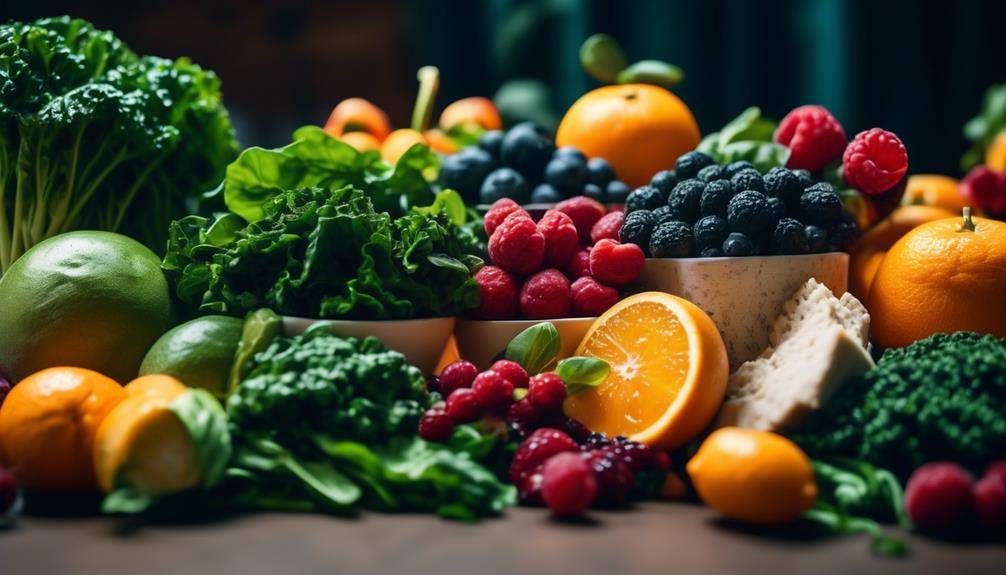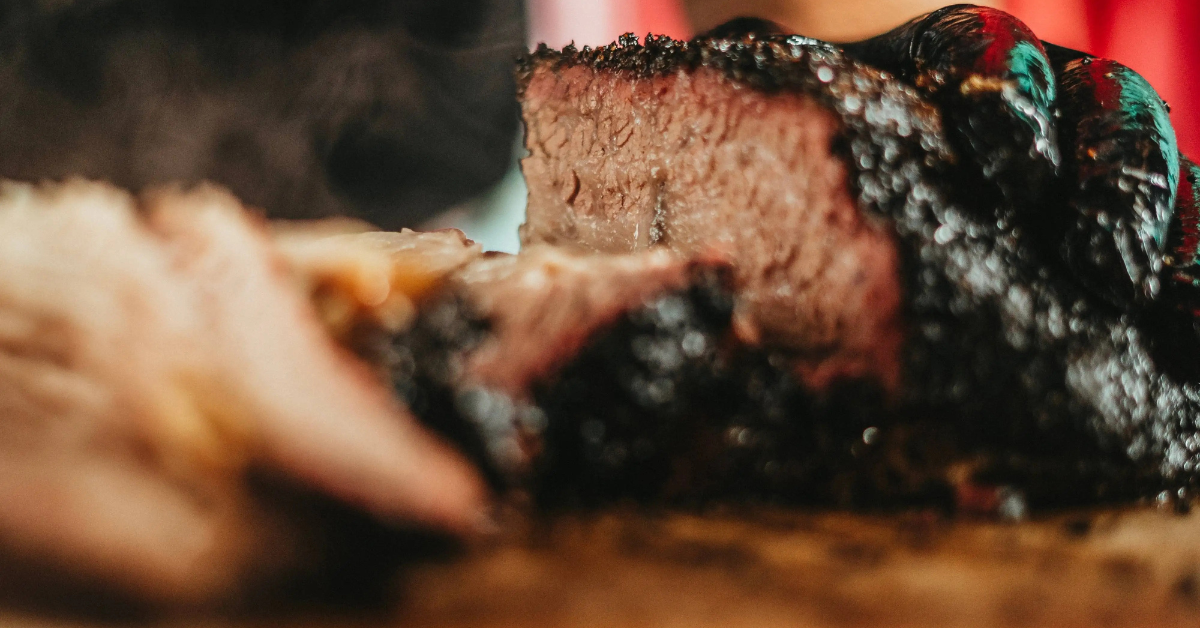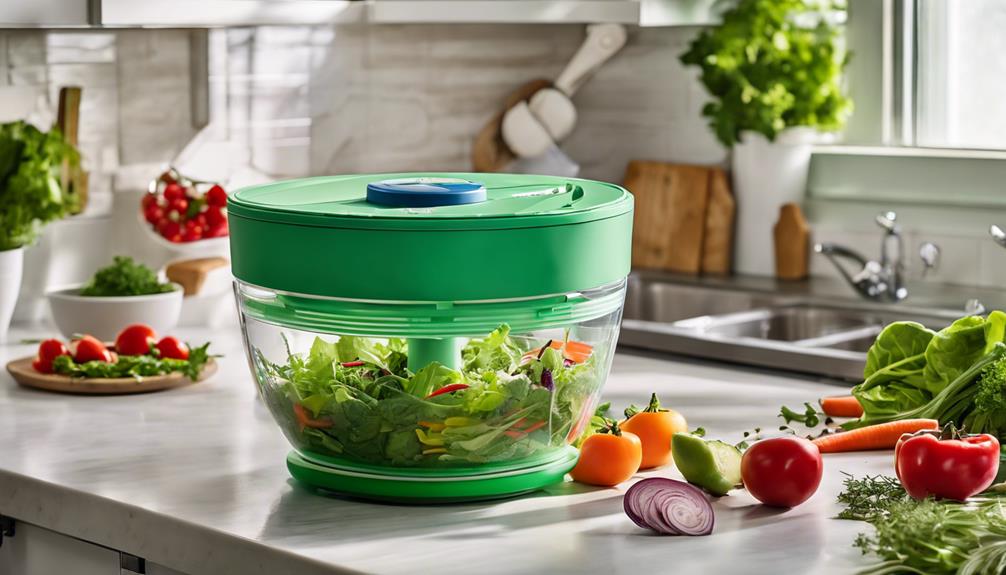Very Important Essential Nutrients for Vegan Diet

Important Essential Nutrients for Vegan Diet; They say, “You are what you eat.” And if you’ve chosen to follow a vegan diet, it’s important to ensure that you’re getting all the essential nutrients your body needs to thrive. But with so many nutrients to consider, where do you start? In this discussion, we will explore the key nutrients that are vital for a vegan diet, from protein and iron to calcium and vitamin B12. But that’s not all – there are other nutrients that often go overlooked, like omega-3 fatty acids, magnesium, fiber, iodine, and selenium. So, buckle up and get ready to discover the essential building blocks of a healthy and balanced vegan lifestyle.
Protein
Protein is an essential nutrient that plays a crucial role in the vegan diet. As a vegan, it is important to find suitable protein alternatives to meet your dietary needs. Fortunately, there are numerous plant-based protein sources that offer a wide range of benefits.
One of the key benefits of plant-based protein is its lower saturated fat content compared to animal-based protein sources. This is significant because a high intake of saturated fat is associated with an increased risk of heart disease. By choosing plant-based protein alternatives, you can help reduce your saturated fat intake and promote heart health.
In addition, plant-based protein sources often contain a variety of other beneficial nutrients, such as fiber, vitamins, and minerals. This is particularly true for whole food sources of plant-based protein, such as legumes, nuts, and seeds. These foods not only provide protein but also offer a range of essential nutrients that support overall health and well-being.
Moreover, plant-based protein sources are typically more sustainable and environmentally friendly compared to animal-based protein sources. Animal agriculture is known to contribute significantly to greenhouse gas emissions and deforestation. By incorporating plant-based protein into your diet, you are making a positive impact on the environment.
Iron
To ensure you meet your iron needs on a vegan diet, it is important to incorporate plant-based sources of this essential nutrient into your meals. Iron is crucial for the production of red blood cells and the transport of oxygen throughout your body. A deficiency in iron can lead to fatigue, weakness, and decreased immune function. Fortunately, there are plenty of iron-rich vegan foods that can help you maintain optimal iron levels.
Here are five plant-based sources of iron to include in your vegan diet:
- Legumes: Foods like lentils, chickpeas, and black beans are excellent sources of iron. They are also high in protein, making them a great addition to any vegan meal.
- Leafy greens: Spinach, kale, and Swiss chard are not only packed with iron but also contain vitamin C, which enhances iron absorption. Add these greens to your salads, smoothies, or stir-fries.
- Nuts and seeds: Almonds, cashews, and sunflower seeds are rich in iron. They can be enjoyed as a snack or used as toppings for salads and oatmeal.
- Whole grains: Quinoa, brown rice, and oats are good sources of iron. They can be used as a base for meals or enjoyed as side dishes.
- Fortified foods: Many plant-based milks, cereals, and meat substitutes are fortified with iron. Check the labels to ensure you are getting enough iron from these products.
Incorporating these iron-rich vegan foods into your meals can help you meet your daily iron requirements and prevent iron deficiency. Remember to pair them with vitamin C-rich foods, such as citrus fruits or bell peppers, to enhance iron absorption. By paying attention to your iron intake, you can maintain optimal health on a vegan diet.
Calcium
Maintaining a balanced vegan diet includes ensuring an adequate intake of essential nutrients, such as calcium, which plays a vital role in maintaining strong bones and teeth. Calcium is a mineral that is necessary for various bodily functions, including muscle contraction, nerve transmission, and blood clotting. It is especially important for bone health, as it helps to build and maintain strong bones throughout life.
Calcium absorption is a crucial process in the body. However, it can be challenging for vegans to obtain enough calcium, as they do not consume dairy products, which are traditionally high in calcium. Fortunately, there are plenty of plant-based sources of calcium that can be incorporated into a vegan diet. Some of the best sources include leafy green vegetables such as kale, collard greens, and spinach, as well as fortified plant-based milk alternatives like soy milk and almond milk.
To enhance calcium absorption, it is also important to consider other factors. Consuming foods rich in vitamin D is essential, as it helps the body absorb calcium more efficiently. Exposure to sunlight is a natural way to obtain vitamin D, but supplements are available for individuals who may have limited sun exposure. Additionally, avoiding excessive intake of caffeine and sodium can help optimize calcium absorption.
Vitamin B12
Getting enough Vitamin B12 is essential for maintaining a healthy vegan diet. Since Vitamin B12 is primarily found in animal-based products, it can be challenging for vegans to obtain adequate amounts solely from their diet. Therefore, it is important for vegans to consider taking B12 supplements to prevent deficiency. Here are five key points to keep in mind:
- Vegan B12 supplements: Taking a daily Vitamin B12 supplement is recommended for vegans to ensure they meet their nutritional needs. These supplements are usually available in the form of tablets, lozenges, or fortified foods.
- Importance of B12: Vitamin B12 is crucial for various bodily functions, including the production of red blood cells and DNA synthesis. It also plays a vital role in maintaining the health of the nervous system.
- Vegan B12 deficiency: Vegans who do not consume B12-fortified foods or supplements are at a higher risk of developing a deficiency. B12 deficiency can lead to fatigue, weakness, nerve damage, and anemia if left untreated.
- Fortified foods: Some plant-based foods, such as plant-based milk, breakfast cereals, and nutritional yeast, are fortified with Vitamin B12. However, it is important to read labels carefully to ensure the products contain adequate amounts of B12.
- Regular testing: Vegans should consider having their B12 levels tested regularly to ensure they are not deficient. This can be done through a simple blood test, and if a deficiency is detected, the healthcare provider may recommend increasing B12 intake or supplementation.
Omega-3 Fatty Acids
Looking to incorporate omega-3 fatty acids into your vegan diet? You’re in luck! There are several vegan sources of omega-3, such as flaxseeds, chia seeds, and walnuts. These plant-based options provide the essential fatty acids that support brain health, reduce inflammation, and promote heart health. If you’re unable to meet your omega-3 needs through food alone, vegan omega-3 supplements derived from algae are also available.
Vegan Sources of Omega-3
To ensure a well-rounded vegan diet, it is important to include plant-based sources of Omega-3 fatty acids. While most people associate Omega-3 with fish, there are several vegan sources that can provide this essential nutrient. Here are some vegan omega-3 sources to consider:
- Flaxseeds: These tiny seeds are packed with Omega-3s and can be easily added to smoothies, oatmeal, or baked goods.
- Chia Seeds: Another great source of Omega-3s, chia seeds can be sprinkled on top of yogurt, added to salads, or used as an egg substitute in vegan baking.
- Hemp Seeds: Not only do hemp seeds offer Omega-3s, but they are also rich in protein and fiber. Add them to your favorite recipes for an extra nutritional boost.
- Walnuts: These nuts are not only delicious but also provide a good amount of Omega-3s. Snack on them or add them to salads or oatmeal.
- Algal Oil: Derived from algae, algal oil is a vegan supplement that provides a direct source of Omega-3 fatty acids.
Health Benefits of Omega-3
Now let’s explore the numerous health benefits associated with Omega-3 fatty acids, shifting our focus from vegan sources to the positive impact these nutrients have on your overall well-being. Omega-3 fatty acids play a crucial role in promoting heart health by reducing the risk of cardiovascular diseases. They have been shown to lower blood pressure and triglyceride levels, decrease inflammation, and improve overall cardiac function.
Additionally, Omega-3s are known to support brain health and cognitive function. They help in the development and maintenance of the brain and nervous system, and have been linked to improved memory and a reduced risk of neurodegenerative diseases. Furthermore, Omega-3s have anti-inflammatory properties that can benefit those with inflammatory conditions such as arthritis. Incorporating vegan sources of Omega-3s into your diet, such as flaxseeds, chia seeds, and walnuts, can provide you with these health benefits and contribute to your overall well-being.
Omega-3 Supplements for Vegans
Omega-3 fatty acid supplements are a beneficial addition to a vegan diet, providing essential nutrients for optimal health. While it is possible for vegans to obtain omega-3 fatty acids from plant-based sources, such as flaxseeds, chia seeds, and walnuts, supplementation can help ensure an adequate intake. Here are five reasons why omega-3 supplements are important for vegans:
- Vegan omega-3 sources may not provide sufficient amounts of EPA and DHA, the two most biologically active forms of omega-3 fatty acids.
- Omega-3 fatty acids play a crucial role in brain health, reducing inflammation, and supporting heart health.
- Vegans have a higher risk of omega-3 deficiency due to the absence of fish and seafood in their diet.
- Supplementing with omega-3 can help maintain healthy levels of these essential fatty acids and reduce the risk of deficiency-related health issues.
- Vegan omega-3 supplements are typically derived from algae, making them a sustainable and cruelty-free option.
Incorporating omega-3 supplements into your vegan diet can help ensure you meet your nutritional needs and support overall well-being.
Zinc
Now let’s talk about the importance of zinc in a vegan diet. Zinc is an essential mineral that plays a crucial role in various bodily functions, including immune system function and cell division. As a vegan, it’s important to ensure you’re getting enough zinc from plant-based sources like legumes, nuts, seeds, and whole grains. Failing to meet your zinc needs can lead to a deficiency, which may result in impaired immune function and delayed wound healing.
Importance of Zinc
Zinc plays a vital role in maintaining overall health and is especially important for individuals following a vegan diet. Here are some key points to understand the importance of zinc:
- Zinc absorption: Vegan diets may have lower zinc absorption rates due to the presence of phytates in plant foods. Phytates can bind to zinc and inhibit its absorption.
- Immune function: Zinc is crucial for a healthy immune system. It helps in the development and functioning of immune cells, such as white blood cells and antibodies, which defend the body against infections.
- Wound healing: Zinc is involved in the synthesis of collagen, a protein necessary for wound healing and tissue repair.
- Taste and smell: Zinc plays a role in maintaining a healthy sense of taste and smell.
- DNA synthesis: Zinc is essential for DNA synthesis, cell division, and growth.
To ensure adequate zinc intake on a vegan diet, include zinc-rich plant foods like legumes, whole grains, nuts, and seeds. Consider soaking, fermenting, or sprouting these foods to enhance zinc absorption. If necessary, a zinc supplement can be taken under the guidance of a healthcare professional.
Vegan Zinc Sources
Maintaining a vegan diet rich in essential nutrients like zinc can be achieved by incorporating a variety of plant-based sources into your meals. While zinc is commonly found in animal-based foods, there are plenty of vegan options available. Legumes, such as chickpeas and lentils, are excellent sources of zinc. Nuts and seeds, like pumpkin seeds and cashews, also provide this essential mineral.
Additionally, whole grains like quinoa and brown rice contain zinc. To optimize zinc absorption, pair these plant-based sources with vitamin C-rich foods, such as citrus fruits or bell peppers. Including zinc-rich vegan recipes in your meal plan, like tofu stir-fry with vegetables or a chickpea salad with pumpkin seeds, can help ensure you meet your daily zinc requirements on a vegan diet.
Zinc Deficiency Risks
To ensure you maintain adequate zinc levels, it is important to be aware of the risks associated with zinc deficiency. Zinc is an essential mineral required for various bodily functions, including immune system function, DNA synthesis, and cell division. Without enough zinc in your diet, you may experience several symptoms of zinc deficiency, such as impaired immune function, delayed wound healing, hair loss, and loss of appetite. It is crucial to address these risks by incorporating zinc-rich foods into your vegan diet. Here are some vegan recipes that are high in zinc:
- Chickpea and spinach curry with pumpkin seeds
- Quinoa salad with black beans and roasted cashews
- Lentil soup with sunflower seeds
- Tofu stir-fry with sesame seeds
- Vegan dark chocolate and walnut energy balls
Vitamin D
Getting enough Vitamin D is crucial for maintaining overall health on a vegan diet. Vitamin D plays a critical role in bone health, immune function, and the absorption of calcium and phosphorus. Without sufficient levels of Vitamin D, vegans may be at an increased risk of certain health conditions.
One of the main health risks associated with Vitamin D deficiency is the development of osteoporosis. Vitamin D helps in the absorption of calcium, which is essential for maintaining strong and healthy bones. Without enough Vitamin D, calcium cannot be properly absorbed, leading to weakened bones and an increased risk of fractures. Vegans who do not consume fortified foods or spend enough time in the sun may be at a higher risk of developing osteoporosis.
To ensure adequate Vitamin D levels, vegans can obtain it from both dietary sources and exposure to sunlight. Some plant-based sources of Vitamin D include fortified plant-based milks, fortified breakfast cereals, mushrooms, and fortified tofu. However, it can be challenging to obtain sufficient Vitamin D through diet alone, especially for those living in regions with limited sunlight or during the winter months.
Sunlight is the most natural and efficient way for the body to produce Vitamin D. Spending around 10-30 minutes in the sun, with a good portion of skin exposed, can help the body synthesize Vitamin D. However, it’s important to be mindful of sun protection and avoid excessive exposure to harmful UV rays.
Vitamin K
Vitamin K, an essential nutrient for vegans, plays a vital role in blood clotting and bone health. It is crucial to ensure that you are getting enough vitamin K in your diet to maintain optimal health. Here are some key points about vegan vitamin K sources and the risks of vitamin K deficiency:
- Green Leafy Vegetables: Dark, leafy greens like spinach, kale, and Swiss chard are excellent sources of vitamin K. These vegetables not only provide high amounts of vitamin K but also offer other essential nutrients.
- Fermented Foods: Foods like sauerkraut, natto, and tempeh are rich in vitamin K. Fermentation increases the bioavailability of vitamin K, making it easier for your body to absorb.
- Plant Oils: Certain plant oils, such as soybean oil, canola oil, and olive oil, contain vitamin K. Including these oils in your cooking or salad dressings can help increase your vitamin K intake.
- Nuts and Seeds: Incorporating nuts and seeds like pistachios, walnuts, and flaxseeds into your diet can provide a good amount of vitamin K. They also offer healthy fats and other essential nutrients.
- Fortified Foods: Some plant-based milk alternatives, breakfast cereals, and plant-based spreads are fortified with vitamin K. Check the labels to ensure they contain adequate amounts.
A deficiency in vitamin K can lead to various health risks, including an increased risk of bleeding and impaired bone health. It is crucial to include vitamin K-rich foods in your diet or consider supplementation if needed. If you have specific concerns or medical conditions, consult with a healthcare professional to determine the appropriate intake of vitamin K for your individual needs. Remember, maintaining a well-balanced vegan diet can help ensure you meet your vitamin K requirements and support overall health.
Vitamin A
Now let’s talk about Vitamin A. This essential nutrient can be found in various plant-based sources such as carrots, sweet potatoes, and spinach. Vitamin A plays a crucial role in maintaining healthy vision, supporting the immune system, and promoting cell growth and development. The daily recommended intake for adults is 700-900 micrograms of vitamin A.
Sources of Vitamin A
To ensure an adequate intake of vitamin A on a vegan diet, it is important to know the various plant-based sources available. Vitamin A is crucial for maintaining healthy vision, supporting immune function, and promoting cell growth and development. The recommended intake of vitamin A for adults is 700-900 micrograms per day. Here are some plant-based sources of vitamin A to incorporate into your vegan diet:
- Carrots: One medium-sized carrot provides approximately 200% of the daily recommended intake of vitamin A.
- Sweet potatoes: A single medium-sized sweet potato contains around 400% of the recommended daily intake of vitamin A.
- Spinach: This leafy green vegetable is a great source of vitamin A, providing about 160% of the recommended daily intake per cup.
- Mangoes: One cup of sliced mangoes offers approximately 35% of the recommended daily intake of vitamin A.
- Apricots: These fruits are rich in vitamin A, with one apricot providing about 15% of the recommended daily intake.
Benefits of Vitamin A
Including vitamin A in your vegan diet offers numerous benefits for your overall health and well-being. Vitamin A is essential for maintaining good vision, as it helps in the formation of the light-detecting cells in your eyes. It also plays a crucial role in the health of your immune system, helping your body fight off infections and illnesses.
Furthermore, vitamin A is important for the growth and development of your skin and mucous membranes, which act as barriers against harmful pathogens. In addition to these health benefits, vitamin A is also known for its antioxidant properties, which can help protect your cells from damage caused by free radicals. Some excellent sources of vitamin A for vegans include carrots, sweet potatoes, spinach, and kale.
Daily Recommended Intake
The daily recommended intake of vitamin A is crucial for maintaining optimal health and well-being on a vegan diet. Vitamin A plays a key role in supporting vision, immune function, and cell growth and development. As a vegan, it is important to ensure you meet the recommended daily intake of vitamin A through plant-based sources. Here are five vegan sources of vitamin A:
- Sweet potatoes: One medium-sized sweet potato provides over 400% of the daily value for vitamin A.
- Carrots: These bright orange vegetables are packed with beta-carotene, a precursor to vitamin A.
- Spinach: This leafy green contains high levels of vitamin A, as well as other essential nutrients.
- Kale: Another nutrient-dense leafy green, kale is a great source of vitamin A.
- Apricots: These fruits are not only delicious but also rich in vitamin A.
Including these foods in your vegan diet can help you meet your daily recommended intake of vitamin A and support overall health.
Vitamin C
Consuming a variety of plant-based foods can provide you with ample amounts of Vitamin C, an essential nutrient for maintaining a healthy vegan diet. Vitamin C, also known as ascorbic acid, is a powerful antioxidant that plays a vital role in several bodily functions. It supports immune system function, aids in the absorption of iron, promotes collagen production, and helps protect against oxidative stress.
For vegans, it is important to ensure an adequate intake of Vitamin C since some plant-based sources may not provide as much as animal-based foods. However, there are plenty of vegan-friendly sources of this nutrient. Citrus fruits such as oranges, lemons, and grapefruits are excellent sources of Vitamin C. Other fruits like strawberries, kiwis, and papayas are also high in this vitamin. Moreover, vegetables like bell peppers, broccoli, kale, and spinach are rich sources of Vitamin C.
In addition to these food sources, fortified plant-based milk and juices are also available and can be included in your diet to increase Vitamin C intake. It is worth noting that Vitamin C is sensitive to heat and can be lost during cooking, so it is best to consume these foods raw or lightly cooked to preserve their nutrient content.
The benefits of Vitamin C for vegans go beyond its antioxidant properties. As a vegan, consuming adequate amounts of Vitamin C can help support a healthy immune system, which is especially important for individuals following a plant-based diet as it may be lower in certain nutrients that support immune function. Additionally, Vitamin C aids in the absorption of iron from plant-based sources, which is crucial for preventing iron deficiency.
To ensure you are meeting your daily requirements, aim to include a variety of Vitamin C-rich foods in your meals and snacks. By doing so, you can reap the numerous benefits of this essential nutrient and maintain a healthy vegan lifestyle.
Magnesium
Maintaining adequate levels of magnesium is crucial for a healthy vegan diet. Magnesium is an essential mineral that plays a role in over 300 biochemical reactions in the body. It is involved in energy production, protein synthesis, muscle and nerve function, and maintaining a healthy immune system. Vegans may be at a higher risk of magnesium deficiency due to the limited intake of certain magnesium-rich foods, such as dairy products and seafood. However, there are plenty of plant-based sources of magnesium that can help vegans meet their daily requirements. Here are five magnesium-rich foods that should be included in a vegan diet:
- Dark Leafy Greens: Spinach, kale, and Swiss chard are excellent sources of magnesium. One cup of cooked spinach provides about 157 mg of magnesium, which is about 40% of the recommended daily intake.
- Nuts and Seeds: Almonds, cashews, and pumpkin seeds are not only high in healthy fats but also rich in magnesium. A quarter cup of almonds contains around 97 mg of magnesium.
- Legumes: Beans, lentils, and chickpeas are not only a great source of protein but also contain magnesium. One cup of cooked black beans provides about 120 mg of magnesium.
- Whole Grains: Quinoa, brown rice, and oats are magnesium-rich grains. One cup of cooked quinoa contains around 118 mg of magnesium.
- Avocado: This creamy fruit is not only a good source of healthy fats but also contains magnesium. One medium-sized avocado provides about 58 mg of magnesium.
Fiber
To ensure a well-rounded vegan diet, it’s important to consider the role of fiber in your daily intake. Fiber is a type of carbohydrate that the body cannot digest. It is found in plant-based foods such as fruits, vegetables, whole grains, legumes, nuts, and seeds. These vegan fiber sources are not only rich in nutrients but also provide numerous health benefits.
One of the main benefits of fiber is its ability to promote healthy digestion. It adds bulk to your stool, making it easier to pass through the digestive system and preventing constipation. Additionally, fiber helps to regulate bowel movements and reduce the risk of developing conditions like hemorrhoids and diverticulosis.
Fiber also plays a crucial role in maintaining a healthy weight. Since it is not absorbed by the body, it provides a feeling of fullness, which can help control appetite and prevent overeating. By including fiber-rich foods in your diet, you can manage weight more effectively and reduce the risk of obesity.
Another advantage of fiber is its impact on heart health. It can help lower cholesterol levels by binding to cholesterol in the digestive system and preventing its absorption into the bloodstream. This, in turn, reduces the risk of heart disease and stroke.
Incorporating fiber into your vegan diet is simple. Start by including a variety of fruits, vegetables, whole grains, legumes, nuts, and seeds in your meals and snacks. Some popular choices include berries, broccoli, quinoa, lentils, almonds, and chia seeds.
Iodine
Now let’s talk about the importance of iodine in a vegan diet. Iodine is crucial for thyroid function and plays a key role in metabolism and brain development. While it is commonly found in seafood and dairy products, there are vegan sources of iodine available, such as seaweed, iodized salt, and fortified plant-based milk. It is recommended to consume around 150 micrograms of iodine per day to meet your body’s needs.
Importance of Iodine
Ensuring an adequate intake of iodine is crucial for maintaining a healthy vegan diet. Iodine is a mineral that plays a vital role in thyroid function and the production of thyroid hormones, which are essential for regulating metabolism. Vegan diets, especially those that exclude iodine-rich foods like seafood and dairy products, may put individuals at risk of iodine deficiency. To ensure you’re getting enough iodine on a vegan diet, consider the following:
- Incorporate iodized salt into your meals.
- Consume seaweed, such as nori or kelp, which is naturally high in iodine.
- Include iodine-rich vegetables, like potatoes and spinach, in your diet.
- Opt for iodine-fortified plant-based milk alternatives, such as soy or almond milk.
- Consider taking an iodine supplement, especially if you are at a higher risk of deficiency, such as during pregnancy or breastfeeding.
Vegan Sources of Iodine
Maintaining adequate iodine levels on a vegan diet is essential, and here are some vegan sources of iodine to consider. Vegan diets can sometimes be deficient in iodine, as it is commonly found in seafood and dairy products. However, there are several plant-based sources of iodine that can help vegans meet their daily requirements. One of the richest sources of iodine for vegans is seaweed, such as nori, kelp, and wakame. Just one gram of dried seaweed can provide more than enough iodine for the day. Other iodine-rich vegan foods include iodized salt, fortified plant-based milks, and iodine-fortified cereals. Incorporating these foods into your diet can help prevent iodine deficiency and ensure optimal health on a vegan lifestyle.
Recommended Daily Intake
To ensure optimal health on a vegan diet, it is important to meet the recommended daily intake of iodine. Iodine is an essential mineral that plays a crucial role in thyroid function and the production of thyroid hormones. The recommended daily intake of iodine for adults is 150 micrograms. Here are five vegan sources of iodine to help you meet your daily requirements:
- Seaweed: Seaweed, such as nori, kelp, and wakame, is a rich source of iodine.
- Iodized salt: Opt for iodized salt instead of regular table salt to increase your iodine intake.
- Fortified plant-based milk: Some plant-based milk alternatives, like soy or almond milk, are fortified with iodine.
- Sea vegetables: Incorporate sea vegetables like dulse, kombu, or hijiki into your meals to boost your iodine levels.
- Baked potatoes: Enjoy a baked potato with the skin on, as it contains iodine.
Selenium
Selenium is an essential nutrient that plays a crucial role in maintaining optimal health on a vegan diet. It is a trace mineral that acts as an antioxidant, protecting cells from damage caused by free radicals. Selenium also supports proper thyroid function and plays a key role in the immune system.
One of the health benefits of selenium is its ability to reduce the risk of certain chronic diseases. Studies have shown that selenium intake is associated with a decreased risk of heart disease, certain types of cancer, and cognitive decline. It may also help to improve fertility and reproductive health.
The recommended dietary intake of selenium for adults is 55 micrograms per day. However, the specific requirements may vary depending on factors such as age, gender, and individual health status. It’s important to note that excessive selenium intake can be harmful, so it’s best to obtain this nutrient from food sources rather than supplements.
Good vegan sources of selenium include Brazil nuts, sunflower seeds, mushrooms, and whole grains. Incorporating these foods into your daily diet can help you meet your selenium needs. However, it’s important to be mindful of the selenium content in plant-based foods, as the levels can vary depending on the soil in which they are grown.
Frequently Asked Questions: Important Essential Nutrients for Vegan Diet
Can a Vegan Diet Provide Enough Protein for Muscle Building and Maintenance?
Yes, a vegan diet can provide enough protein for muscle building and maintenance. There are plenty of vegan protein sources like beans, lentils, tofu, and quinoa that can help you achieve your fitness goals.
How Can Vegans Ensure They Are Getting Enough Iron in Their Diet?
To ensure you’re getting enough iron in your vegan diet, focus on consuming iron-rich vegan foods like legumes, tofu, spinach, and quinoa. Pairing these foods with vitamin C-rich options can enhance iron absorption.
What Are the Best Plant-Based Sources of Calcium for Vegans?
To ensure you’re getting enough calcium on a vegan diet, focus on plant-based sources like tofu, fortified plant milks, leafy greens, and almonds. These vegan-friendly foods can provide the calcium your body needs.
Do Vegans Need to Take Vitamin B12 Supplements, and if So, How Much Should They Take?
You need to take vitamin B12 supplements as a vegan. It’s important for your overall health. The recommended amount is 2.4 micrograms per day. Make sure to consult a healthcare professional for personalized advice.
Are There Any Plant-Based Sources of Omega-3 Fatty Acids That Can Adequately Replace Fish Oil Supplements for Vegans?
There are plant-based alternatives to fish oil for omega-3 fatty acids that can adequately replace supplements for vegans. Vegan sources of omega-3 fatty acids include chia seeds, flaxseeds, hemp seeds, and walnuts.
Conclusion
In conclusion, a well-planned vegan diet can provide all the essential nutrients needed for optimal health. Protein sources such as legumes and tofu, iron-rich foods like spinach and lentils, and calcium-rich plant-based options such as broccoli and fortified plant milks are readily available. Although vitamin B12 and omega-3 fatty acids may require supplementation, it is still possible to meet these needs through fortified foods or supplements. By including a variety of nutrient-dense plant foods, vegans can easily obtain the necessary vitamins and minerals for a balanced diet.








